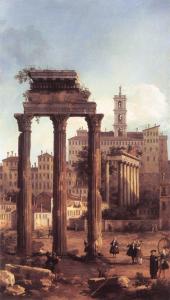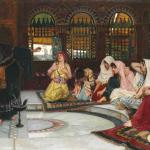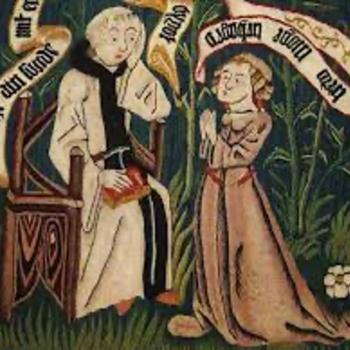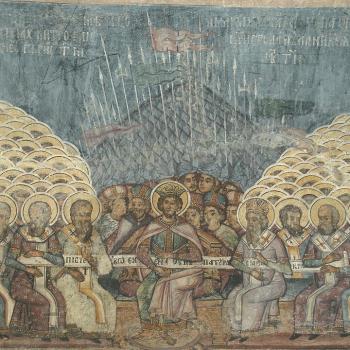I remember the first time I read the New Testament book of Acts. It was the spring semester of my first year of college, and I was taking an introductory survey of Roman History. This was at a secular state university, and we read Acts simply as a primary source about the early church in its original historical context—the Roman Empire.
Twelve years after that, I came to Christ. Reading the Gospels was what convinced me ultimately that Jesus’s claims were true. But it was the understanding of just how incredible—literally—those claims were in the cultural context of the Roman Empire that was key in leading me to that conclusion. Indeed, as I have joked on occasion since then, my conversion was an occupational hazard: as a Roman historian, I was simply following the evidence to its logical conclusion.
Earlier this fall, a viral TikTok video claimed that men think about the Roman Empire daily. But instead of making fun of the trend, I want to point out what is absent from it: the fascination driving this trend seems to revolve around the Roman Empire’s glamour, power, impressive achievements. These are indeed part of Rome’s history, but they are far from all of it. This trend of glamorizing the Roman Empire does not revolve around the people who lived there, unless these be generals and emperors. And this trend certainly shows no interest in the crucified Messiah and the cruelty of the world that made the compassion of the early church so remarkable, that others were drawn to it like moths to a flame.
I want to explain here, therefore, why Christians should think about the Roman Empire daily–but not in that TikTok video sort of way. Rather, thinking about Roman history can enrich our Bible reading in profound ways. While this is not the main argument of my new book (officially released yesterday!), Cultural Christians in the Early Church, this is an underlying theme throughout the book.
The foundational claims of Christianity are historical claims: they are rooted in historical events that believers since the earliest times asserted happened. Christ lived a human life. He ministered to real people all around and performed real miracles that numerous other people witnessed. The greatest of these miracles involved an empty tomb three days after a horrifyingly cruel and messy death of the sort Romans originally reserved for the enslaved or for non-citizen criminals.
If you have been a Christian for any length of time, you have heard all of this so often, that perhaps it no longer even sounds miraculous, wondrous, moving. Yet it should be all of these things. Lost in the mists of life-long church commitments, somehow, simply knowing this—that the claims of Christianity are historical, and that the history in which they are rooted is that of the Roman Empire—might not rock your world. But it should.
To be fair, a lack of amazement at the above historical background is perhaps understandable. The early Christians, historical they may be, seem far removed from us and difficult to understand at first glance. Imagine how much many of us struggle to understand and relate to our own parents or grandparents—those individuals with whom we share DNA, yet who had witnessed a world just a little bit different from our own, a few decades removed from us, even if in this very country. It is no wonder, then, that we struggle so intensely to understand and relate to our spiritual forebears, those early converts to Christianity who lived in a different part of the world, spoke different languages from us, had a very different worldview rooted in the cultures of the ancient Near East and the Mediterranean world, and in some cases, got to witness for themselves the amazing miracles that Acts documents—miracles about which we merely read. In translation.
I think about this lack of connection when people mention how difficult they find it to read the New Testament in large doses. Indeed, second only to Christians’ laments that they feel that they do not pray enough, Bible reading regularly tops the list of activities many Christians feel they should be doing more often, more regularly, and with greater enthusiasm. For too many believers, Bible reading feels a lot like eating kale—that vegetable that is so good for us, we know, but few will ever sit down and consume it in large doses.
So how might we befriend the early Christians, these strange people whom we meet in Acts and in the rest of the New Testament? How might we understand them, and in the process grow in our understanding of God and of our own faith? How might we make the New Testament more relatable and enjoyable to read? In the same way as we grow in our understanding of other people who matter to us: by getting to know them better.
In the case of friends, relatives, neighbors that we would like to know better, this means engaging in conversations, time together, shared experiences and meals that lead us to grow in our factual knowledge of each other—what are their favorite foods, books, activities, memories? We listen to stories, both joyful and sad. We laugh together and weep over sorrows, whether these be long-ago or recent. It is an investment of time and deliberate care. Our relationship—knowledge of each other—will go only as deep as our investment. In all human relationships, you reap what you sow.
It is not so different with getting to know the people of the early church, the ones who inhabit the pages of the New Testament. Originally, though, they inhabited the Roman Empire. So we must get to know them by learning more Roman history: what kind of world was this? What were the shared values, concerns, fears of the people in this vast empire? What factors shaped different people’s lives? What were some of these believers’ lives before they found Christ—or, rather, before Christ found them? Just how different was Christianity from both Judaism and traditional Roman religion?
It is through the understanding of the world in which the early Christians lived that we can begin to see them in color, as real people with real problems and dilemmas and struggles—just as real as our own problems and struggles, and those of our friends and relatives. And it is through this process that these people will become relatable and familiar, I promise.
And so, Christians should think about the Roman Empire and get to know it not just for its power and military achievements, but for its historical complexity—for all the ways that living in it shaped the lives of the earliest Christians. It is an empire worth thinking about daily, because understanding the early church is impossible otherwise. And I promise you, getting to know it better will enrich your Bible reading.














